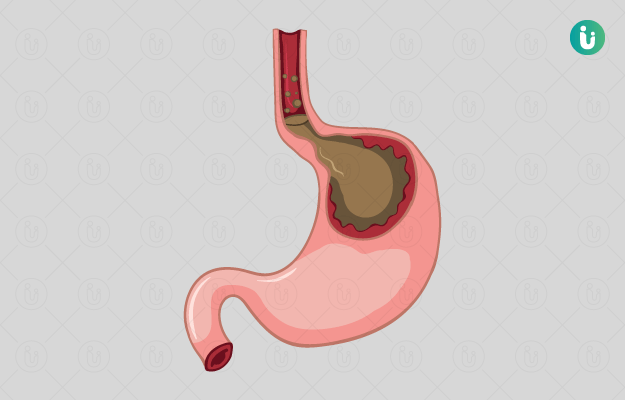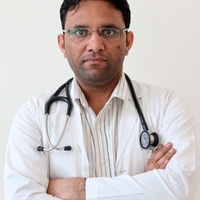What is GERD?
GERD, also called gastro-oesophageal reflux disease, is a condition in which the ring-shaped muscle present at the end of the food pipe (oesophagus) does not close properly, and therefore allows the contents of the stomach to go up into the food pipe and cause irritation. It is similar to heartburn. However, if the individual experiences heartburn more than twice a week, it is known as GERD.
What are its main signs and symptoms?
The primary symptom of GERD is experiencing heartburn more than twice a week.
Other symptoms include:
- Burning sensation in the middle of the chest
- Hiccups
- Burning sensation in the throat
- Difficulty in swallowing
- Bad breath
- Bloating
- Feeling sick after eating
- Unpleasant sour taste in the mouth
- Chest pain after eating
- Regurgitation (the stomach acid coming up into the mouth and leaving an unpleasant taste)
What are its main causes?
GERD occurs when the muscle present at the base of the food pipe is weakened and unable to prevent the stomach contents from rising up into the throat. This could happen due to multiple reasons such as:
- Obesity
- Excessive consumption of caffeine or alcohol
- Pregnancy
- High-fat diet
- Experiencing stress
- Hiatal hernia (upper part of the stomach moves into the chest)
- Smoking
- Intake of certain medications like painkillers
- Eating spicy foods
How is it diagnosed and treated?
The primary step in diagnosis is inquiring about the symptoms. There are various tests which may be performed for confirming GERD diagnosis These include:
- Endoscopy (to assess if there is any damage to the food pipe)
- Manometry (to assess if the muscle at the base of the food pipe is working normally)
The doctor may recommend certain measures to prevent heartburn. These include:
- Avoiding foods which trigger acidity
- Losing weight
- Sleeping on a surface which elevates the upper portion of the body
- Eating smaller meals
- Practising relaxation techniques
- Avoiding caffeine, smoking and alcohol
In most cases, medications may also be provided for relief from heartburn.
In severe cases, surgery may be recommended to strengthen the muscle.

 Doctors for GERD (Gastroesophageal Reflux Disease)
Doctors for GERD (Gastroesophageal Reflux Disease)  OTC Medicines for GERD (Gastroesophageal Reflux Disease)
OTC Medicines for GERD (Gastroesophageal Reflux Disease)



















